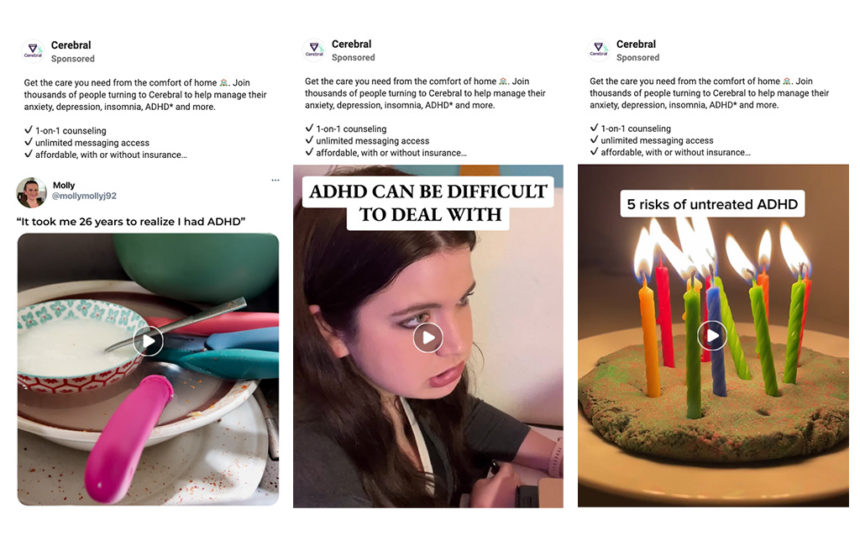Telehealth startup Cerebral, which has been adjusting its marketing in the face of scrutiny over prescribing controlled substances for ADHD, is being investigated by the Justice Department for possible violations of the Controlled Substances Act, the firm said over the weekend.
The company said a grand jury subpoena from the U.S. Attorney’s Office for the Eastern District of New York was received last Wednesday, according to Insider, which first reported the news on Saturday.
“To be clear, at this time, no regulatory or law enforcement authority has accused Cerebral of violating any law,” the company said in a statement, adding that it intends to fully cooperate with the investigation.
Cerebral is one of a number of online mental-health startups that have emerged to treat ADHD and other conditions. Unlike some others, the company has also offered prescriptions for controlled substances used to treat ADHD.
But on the same day it was subpoenaed, Cerebral’s management said they were pausing the issuance of prescriptions for Adderall, Ritalin and other stimulants to treat ADHD in new patients. The pause took effect Monday.
The company will continue to treat existing ADHD patients with stimulants, as well as prescribe controlled substances for other mental illnesses like anxiety. That’s according to a note obtained by The Wall Street Journal, which the company’s chief medical officer and president, Dr. David Mou, sent to clinicians.
Cerebral also said it was “adjust[ing] marketing and advertising strategies” accordingly. This includes reviewing its existing promotional efforts and forming a committee – composed of clinical and brand team members – whose job is to review paid social ads, per a company statement.
In the days following its announcement of the prescribing pause, Facebook ads highlighted Cerebral’s affordability, online screening tool and treatment plans crafted by a team of mental-health professionals, “whether that’s talk therapy or medication.” The ads stop short of touting access to prescription drugs for ADHD.
“As a result of the recent company decisions, Cerebral is updating the language on several ads,” a company spokesperson explained. “The updated language notes that Cerebral clinicians cannot prescribe controlled substances for ADHD in accordance with Cerebral’s recently announced policies.”
The spokesperson added that, while these edited ads may appear under Facebook’s ad library as a “new” ad launch, “They might not be new ad concepts, just edited ads that include the revised language.”
Social media tracking firm PranifyRx listed 110 Facebook ads for Cerebral that were live as of Monday, along with 220 ads on Instagram.
Because they don’t advertise specific drugs, sites like Cerebral aren’t beholden to the same advertising regulations as drugmakers. They often act as platforms that merely connect patients to HCPs; it’s up to those clinicians to exercise their medical judgment. Ads that don’t recommend or suggest use of a specific drug aren’t regulated by the Food and Drug Administration.
Nevertheless, Cerebral’s advertising and prescribing practices have drawn scrutiny from social media platforms and members of the medical community, as well as federal regulators.
Earlier this year, Meta and TikTok pulled Cerebral ads for promoting negative body images, including one that linked ADHD to obesity. Experts also alleged that some ads contained misleading health claims.
“Our advertising is designed to reach people who are struggling and don’t know where to turn to get help. We are trying to inform, not harm,” Cerebral CEO Kyle Robertson wrote in a blog post last week. He acknowledged, however, that, “We recognize that we have made mistakes when it comes to our TikTok, Facebook and Instagram advertising in the past.”
In March, as the WSJ reported, some of Cerebral’s nurse practitioners said they felt pressured by the company to prescribe stimulants after a 30-minute patient evaluation. Some pharmacies, including Walmart and CVS, blocked or delayed Adderall scripts from Cerebral (and from fellow telehealth startup Done) in April over concerns of over-prescribing.
Earlier this month, Cerebral’s “preferred pharmacy,” mail-order pharmacy TruePill, halted scripts for Adderall and other Schedule 2 drugs “out of an abundance of caution.” The Drug Enforcement Agency is also investigating Cerebral, Insider reported last week.







